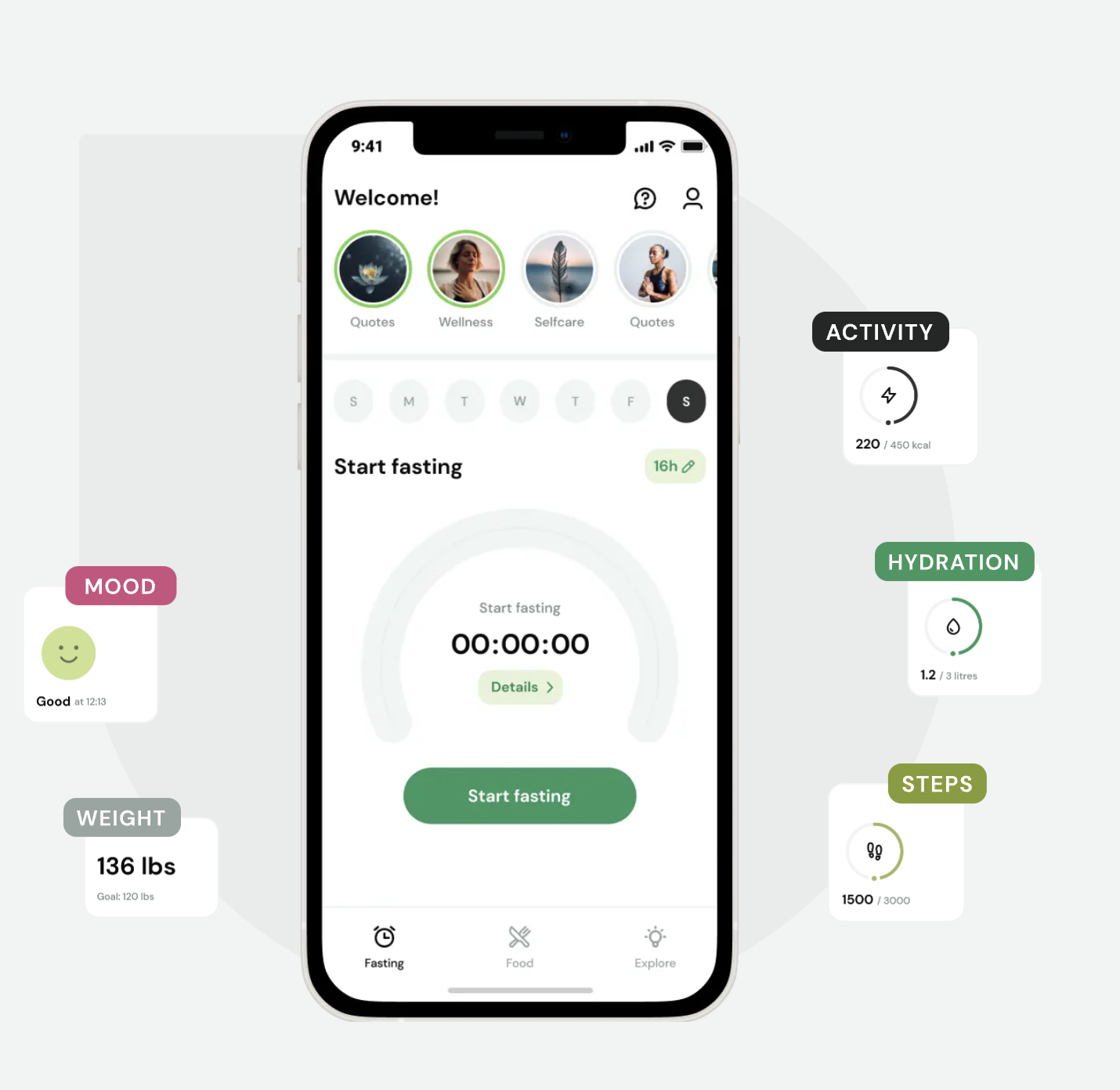As we women age, our bodies undergo significant changes that can be difficult to manage. Menopause is a natural biological process that marks the end of a woman’s reproductive years. It can bring about a host of symptoms, including hot flashes, mood swings, and vaginal dryness. Fortunately, there are now apps available that can help women track symptoms and manage our health during this transition.
Tracking Menopause Symptoms
One of the most useful features of menopause apps is the ability to track symptoms. You can input information about your menstrual cycle, hot flashes, night sweats, mood swings, and other symptoms. The app will then generate a report that shows how often these symptoms occur and how severe they are. This information can be incredibly helpful when discussing treatment options with a healthcare provider.
Health Management During Menopause
Another benefit of menopause apps is that they provide users with tools to manage your health during this time. Many apps offer tips and advice on lifestyle changes that can help alleviate symptoms, such as exercise and diet modifications. Some apps even offer cognitive behavioral therapy exercises to help users manage emotional symptoms like anxiety and depression.
Choosing the Right Menopause App
With so many menopause apps available, it can be difficult to know which one to choose. It’s important to look for an app that offers features that are relevant to your specific needs. For example, some apps focus on tracking menstrual cycles, while others are designed to help manage symptoms like hot flashes and night sweats. It’s also important to look for an app that offers community support and a personalized reporting system.
Key Takeaways
- Menopause apps can help women track your symptoms and manage your health during this transition.
- These apps offer tools to manage symptoms and provide tips on lifestyle changes that can alleviate symptoms.
- When choosing a menopause app, it’s important to look for one that offers features relevant to your specific needs and provides community support.
Tracking Menopause Symptoms
Menopause is a natural biological process that marks the end of a woman’s reproductive years. It is a time of significant hormonal changes that can cause a range of symptoms, such as hot flashes, night sweats, mood swings, joint pain, vaginal dryness, and more. Tracking these symptoms can be a helpful way to understand and manage menopause.
Benefits of Using Menopause Tracker Apps
Menopause tracker apps can be a valuable tool for women who want to keep track of your symptoms and gain insight into your menopause journey. These apps offer a range of benefits, including:
Easy symptom tracking: Menopause tracker apps make it easy to track symptoms like hot flashes, mood swings, and more. Users can log your symptoms quickly and easily, and the app will keep track of them over time.
Personalized reporting: Many menopause tracker apps offer personalized reporting systems that can help users understand your symptoms and how they change over time. These reports can be helpful when discussing menopause with a healthcare provider.
Community support: Some menopause tracker apps offer community support features that allow users to connect with others who are going through similar experiences. This can be a helpful way to get support and advice from others who understand what it’s like to go through menopause.
Features of Effective Symptom Trackers
When choosing a menopause tracker app, it’s important to look for features that will help you track your symptoms effectively. Some key features to consider include:
Daily tracking: The app should allow you to track your symptoms on a daily basis, so you can get a clear picture of how they are changing over time.
Personal notes: The app should allow you to add personal notes about your symptoms, so you can remember important details that may be helpful when discussing menopause with your healthcare provider.
Symptom toolkit: Some menopause tracker apps offer symptom toolkits that provide information and tips for managing specific symptoms, such as hot flashes or mood swings.
Integrating Lifestyle Factors into Tracking
In addition to tracking symptoms, it’s important to consider how lifestyle factors may be affecting your menopause experience. Menopause tracker apps can help you integrate lifestyle factors into your tracking by allowing you to log daily activities and lifestyle changes. This can help you identify patterns and triggers that may be contributing to your symptoms.
Menopause tracker apps can be a helpful tool for women who want to understand and manage your menopause symptoms. By tracking symptoms, using symptom toolkits, and integrating lifestyle factors into tracking, women can gain insight into your menopause journey and make informed decisions about their health.
Health Management During Menopause
Menopause is a natural biological process that marks the end of a woman’s reproductive years. It can bring about various physical and emotional changes that can affect daily life. Health management during menopause is crucial for women to maintain your physical and emotional well-being.
Role of Diet, Fitness, and Nutrition
A healthy diet and regular exercise can help manage menopausal symptoms such as weight gain, hot flashes, and joint pain. Women should aim for a balanced diet that includes plenty of fruits, vegetables, whole grains, and lean proteins. It is also important to stay hydrated and limit caffeine and alcohol intake. Regular exercise, such as walking, swimming, or yoga, can help maintain bone density, reduce stress, and improve sleep quality.
Cognitive Behavioral Therapy and Mindfulness
Cognitive Behavioral Therapy (CBT) and mindfulness techniques can help women manage the emotional symptoms of menopause, such as mood swings, anxiety, and depression. CBT helps individuals identify negative thought patterns and replace them with positive ones. Mindfulness techniques, such as meditation and deep breathing, can help reduce stress and promote relaxation.
Treatment Options and Alternative Therapies
Hormone therapy is a common treatment option for menopausal symptoms, but it is not suitable for all women. Alternative therapies, such as herbal supplements, acupuncture, and pelvic floor training, can also help manage symptoms. Women should discuss your options with your healthcare provider to determine the best course of treatment for your individual needs.
Overall, managing menopausal symptoms requires a holistic approach that includes diet, fitness, emotional support, and medical treatment when necessary. Women can use health apps and symptom trackers to keep track of your symptoms and monitor progress. By taking an active role in your health management, women can navigate your menopause journey with confidence and ease.
Choosing the Right Menopause App
When it comes to tracking menopause symptoms, a menopause app can be a great tool to help women stay on top of your health. With so many options available, it can be difficult to choose the right app. Below we provide guidance on how to compare features and user reviews, consider privacy and data security, and evaluate community and professional support.
Comparing Features and User Reviews
When choosing a menopause app, it is important to compare features and user reviews to find the best fit. Some apps offer basic period tracking while others include features such as mood tracking, symptom intensity tracking, and personalized reporting systems. User reviews can also provide valuable insight into the app’s functionality and ease of use.
Privacy and Data Security Considerations
Privacy and data security are important considerations when choosing a menopause app. Users should ensure that the app is compliant with privacy laws and that personal data is kept secure. It is also important to read the app’s privacy policy to understand how data is collected and used.
Community and Professional Support
Community and professional support can be valuable resources for women going through menopause. Some menopause apps offer community support where users can connect with others going through similar experiences. Other apps provide access to healthcare professionals who can answer questions and provide guidance. When choosing a menopause app, it is important to consider the level of support that is available.
Choosing the right menopause app can be a helpful tool for women to track your symptoms and stay on top of your health. By comparing features and user reviews, considering privacy and data security, and evaluating community and professional support, women can find the best app to fit your needs.
Living with Menopause
Menopause is a natural biological process that every woman goes through. However, it can be a challenging and sometimes frustrating journey. Living with menopause requires daily life adjustments and coping strategies to manage the symptoms effectively. Emotional well-being and mental health are also important aspects to consider during this period. Engaging with a supportive community can provide women with the necessary resources and tools to navigate this transition successfully.
Daily Life Adjustments and Coping Strategies
Making lifestyle changes can help women manage the symptoms of menopause. Regular exercise, a healthy diet, and getting enough sleep can improve mood, reduce hot flashes, and promote overall health. Women should also avoid triggers such as caffeine, alcohol, and spicy foods that can worsen symptoms. Using a period-tracking app or a menopause tracker can help women keep track of your symptoms and identify patterns.
Emotional Well-being and Mental Health
Mood swings, brain fog, and emotional symptoms are common during menopause. Women should prioritize your mental health and seek support when needed. Engaging in activities such as meditation, yoga, or cognitive behavioral therapy can help reduce stress and improve emotional well-being. Personal notes and journaling can also be a helpful tool to express emotions and track progress.
Engaging with a Supportive Community
Connecting with a supportive community can provide women with the necessary resources and tools to navigate the menopause journey. Women can seek support from family, friends, or join online forums or support groups. Best apps such as Free Balance App can provide a symptom toolkit and personalized reporting system to help women track your symptoms and connect with others who have similar experiences. Seeking advice from a health care provider is also essential to explore treatment options and manage symptoms effectively.
In conclusion, living with menopause requires daily life adjustments, emotional well-being, and engaging with a supportive community. Women should prioritize your mental and physical health and seek support when needed. With the help of menopause apps and lifestyle changes, women can manage your symptoms effectively and improve your quality of life.
Frequently Asked Questions
Which app is most effective for managing and tracking menopause symptoms?
There are several menopause tracking apps available on both the Apple App Store and Google Play Store. Some of the best apps include the Menopause Tracker, Free Balance App, and the Menopause Symptom Tracker App. These apps allow users to keep track of your symptoms, mood swings, and daily activities. They also offer a personalized reporting system and community support to help women navigate your menopause journey.
1. Evernow
Android: Not available
Apple: Evernow for iOS
Evernow offers a personalized health profile and connects users with clinicians for tailored symptom relief. With a monthly fee, it’s a comprehensive solution backed by medical guidelines.
2. Midday
Android: Not available
Apple: Midday for iOS
Midday provides end-to-end menopause management, integrating with smart devices for a holistic view of your health. After a free trial, it’s available via subscription.
3. Caria
Android: Caria for Android
Apple: Caria for iOS
Caria is a versatile app offering symptom tracking, cognitive behavioral therapy, and expert advice. It’s a comprehensive health companion for managing menopause.
4. Balance
Brought to you by renowned menopause specialist, Dr Louise Newson, Balance personalizes your experience based on your symptoms and health history.
5. MenoLife
Android: MenoLife for Android
Apple: MenoLife for iOS
MenoLife is designed specifically for perimenopause and menopause, offering symptom tracking and community support. It’s an all-in-one tracker for midlife women’s health.
What lifestyle changes can help alleviate menopausal symptoms?
Lifestyle changes can be effective in alleviating menopausal symptoms. Some of the best strategies include maintaining a healthy weight, regular exercise, and a balanced diet. Reducing caffeine and alcohol intake and quitting smoking can also help. Additionally, practicing stress-reducing techniques such as yoga, meditation, and deep breathing can help manage symptoms like hot flashes and night sweats.
How can cognitive behavioral therapy assist with mood swings during menopause?
Cognitive behavioral therapy (CBT) is a form of therapy that focuses on changing negative thought patterns and behaviors. CBT can be effective in managing mood swings during menopause by helping women identify and change negative thought patterns that contribute to depression and anxiety. Through CBT, women can learn coping strategies to manage your emotions and improve your overall quality of life.
What are the best strategies for dealing with weight gain associated with menopause?
Weight gain is a common symptom of menopause. The best strategies for managing weight gain include maintaining a healthy diet and regular exercise routine. Eating a balanced diet that is low in sugar and high in fiber can help manage weight gain. Additionally, intermittent fasting, as well as strength training exercises can help build muscle mass, which can help boost metabolism and burn calories.

#1 Fasting App
Ready to see a happier version of yourself? Track mood, weight, hydration, steps and more!
Can health apps provide community support and personalized advice for menopause?
Yes, health apps can provide community support and personalized advice for menopause. Many menopause tracking apps offer community support forums where women can connect with others who are going through similar experiences. These apps also offer personalized advice based on a user’s symptoms and health history.
What treatment options are available for common menopausal symptoms like hot flashes and night sweats?
There are several treatment options available for common menopausal symptoms like hot flashes and night sweats. Hormone replacement therapy (HRT) is one of the most effective treatments for hot flashes and night sweats. Other treatments include prescription medications, herbal supplements, and lifestyle changes like maintaining a healthy diet and regular exercise routine. It’s important to discuss treatment options with a healthcare provider to determine the best course of action for managing menopausal symptoms.










